~ continued from page 1 ~
Ancient Messini boasts plenty of historic attractions, as this signpost on the main street of Mavromati indicates. However, with our limited time in the area, we got to see only a few of them.
When we asked for suggestions on how we might see some of the area’s top attractions in the short time we had available, Maria, our hostess at Messana Hotel, recommended a scenic driving route that would take us to the Arcadian Gate and circuit wall, as well as to an historic monastery several kilometers from there. On the way back we could stop to visit the Ancient Messini archaeological site and museum, since both would be open until 8 o’clock in the evening.
The gate and wall are situated merely 800 meters from Mavromati, so we could have walked there had we been feeling more ambitious. But since the monastery is several kilometers farther afield, near the settlement of Petralona, we opted to take the car so we could comfortably see all three sites in one trip.
We could have driven right through the gate — a road passes through it, after all — but we parked the car so we could enter on foot and appreciate its impression construction and design close up.
♦ The Arcadian Gate
An aerial view of the circular Arcadian Gate.This image appears in a photo gallery on the Ancient Messene website of the Society Of Messenian Archaeological Studies.
Looking through the Arcadian Gate in the direction of Ancient Messini
The giant toppled lintel at the Arcadian Gate
A tourist walks past the tall curved wall that encloses the entrance courtyard of the Arcadian Gate
There’s a distinct hum in the air at the Arcadian Gate, and a close-up peek at the courtyard walls revealed why — wasps have built dozens and dozens of nests in the limestone blocks
An information sign with an illustration of the Arcadian Gate, part of the circuit wall, and grave chambers built outside the gateway
This illustration suggests how the exterior of the gate would have looked
Mount Ithomi dominates this view from the road on the west side of the Arcadian Gate
Looking into the courtyard from the west entrance of the Arcadian Gate
A section of the circuit wall rises up the hill beside the Arcadian Gate. The wall and gate were built from large blocks of limestone.
A watch tower on the circuit wall, near the Arcadian Gate. More than 30 towers were built. Most were square, while a few were horseshoe-shaped.
Remnants from a series of grave chambers that had been constructed on the west side of the Arcadian Gate
Some of the partially reconstructed grave chambers near the Arcadian Gate
Mountain views from the west side of the Arcadian Gate
[adToAppearHere]
♦ The circuit wall
We had the Arcadian Gate almost to ourselves during the nearly 30 minutes we explored the monument and its surroundings. Only four other tourists arrived to take a quick look-around and snap photos, and just two vehicles passed through the gate while we were there.
From the gate we drove a short distance to a scenic lookout point that offered sweeping views of Mount Ithomi and the countryside around us. Here we were able to access a long segment of the circuit wall and walk between three of the remaining towers. The wall stands as high as 7 meters above the ground, but has collapsed or crumbled in many places. Some of these spots were awkward or even treacherous to walk and climb — I almost turned an ankle when a boulder slipped out of place beneath my foot — but we all made it back safely.
800-meter-tall Mount Ithomi provided a natural fortification that protected Ancient Messini from invasion from the north
Mountains, hills and thousands of olive trees extend into the distance beyond a section of the circuit wall
Houses in a hillside settlement near Ancient Messini
The remains of a watch tower and the circuit wall on a hill near the Arcadian Gate
Looking west along the circuit wall, where it extends up and over a hill before linking to the Arcadian Gate
Watch your step! The limestone blocks have shifted and collapsed over the millenia, so it can be treacherous walking on top of the wall
View of the wall from inside one of the lookout towers
A curved circuit wall tower offers views all the way to the Gulf of Messenia
A zoom view of Mavromati from a tower on the circuit wall
One of the square towers on the circuit wall
A tower and wall segment on a steep hillside above Ancient Messini
♦ Andromonastiro (Monastery of the Metamorphosis)
Next stop on our mini tour was Andromonastiro (the Monastery of the Metamorphosis), located southeast of the settlement of Petralona. The drive there took only 10 minutes down a quiet dirt road that twisted past vast groves of olive trees and forested areas thick with trees, shrubs and bushes. Apart from the lush landscapes and vast valley views, we saw just a few other cars, a flock of grazing sheep, and two large snakes that had been squished by passing vehicles.
We arrived at a tree-shaded parking area beside the monastery to find no-one else around. It was so peaceful and serene — all we could hear were birds chirping and water gurgling softly in a nearby brook. We headed for what appeared to be an entrance path to the monastery grounds, but the tranquil moment was suddenly interrupted when a pair ofdogs began to approach and started barking fiercely. We hastily retreated to the road so we could safely view the monastery from a distance and avoid confronting the canines. The guard dogs’ presence indicated that the monastery wasn’t open for public viewing at this particular time, so we had to settle for a look from the outside.
The dogs didn’t pursue us as we walked 100 meters toward a relatively clear spot from which we could get a decent view of the monastery (trees and lush foliage lined most of the roadside and blocked much of the complex from view). I noticed an old, arched bridge above the creek and moved closer to take a photo, not realizing that I had nearly stepped on a snake. I saw the serpent in the corner of my eye only when it started to move away. I was so startled I leaped back onto the road, nearly tripping in the loose sand, but I caught a glimpse of the zig-zag pattern on the snake’s brown and golden yellow skin before it slithered into the underbrush and disappeared. About 8 centimeters thick and nearly a meter long, it may well have been one of the venomous Peloponnese horned vipers that our travelling companions had warned us to beware of while hiking. That certainly was a close call!
The four of us managed to take photos of the monastery and the old stone bridge, and return to the car, without sustaining any nasty dog or snake bites.
On our way to the monastery, we passed this group of local residents grabbing a quick bite to eat on the roadside
The Andromonastiro (Monastery of the Metamorphosis) was built around the end of the 12th Century and beginning of the 13th. The complex had been abandoned for more than 100 years and had fallen into severe disrepair. In 2011, restoration work commenced on the church, tower and auxiliary buildings.
Exterior view of the monastery’s restored fortification walls. Photos showing the complex both before and during the extensive renovations can be viewed on the Andromonastiro page of the Kastrologos — Castles of Greece website, as well as on the Gianni D. Lyra blog.
Windows on the upper level of one of the monastery buildings. We could only view Andromonastiro from the outside, since it wasn’t open to visitors. The monastery is open every August 6 for a festival celebrating the Transfiguration.
Andromonastiro was a male-only institution. Another monastery in the area, Zoodochos Pigi, was designated for females only.
A view of roofing tiles and a tower that were restored during a €3-million project that took several years to complete. Andromonastiro is considered to be the most important monastery in Messinia, both for its architectural beauty and for its monastic history.
The arched stone bridge at the Andromonastiro monastery
Another view of the monastery’s ancient stone bridge
A view of the monastery from the roadside spot where I had a too-close-for-comfort encounter with a Peloponnese viper
[adToAppearHere]
♦ The Ancient Messini archaeological site
Retracing our route, we arrived at the archaeological site of Ancient Messini in less than 20 minutes. By this point, jet lag and the hot sun had taken their toll , leaving my partner and me feeling weary and desperate for a snooze. At the ticket kiosk, we debated whether we had the stamina to fight our fatigue and explore enough of the site to justify the entry fee (€12 per person, it included admission to the Archaeological Museum of Messini in Mavromati). Concluding that we were simply too tuckered out to wander around the ruins and see the museum, we decided it was time for a rest.
On our way back to the car, we discovered that we would be able to observe some of the site through the security fence near the entrance. From that vantage point, we got to admire some mosaic floors and see the partially restored buildings spread across the valley below us. It wasn’t as interesting as a close-up look would have been, but it certainly was better than not getting to see any of the site at all. We’d had a great afternoon, and our 2017 holiday was off to a good start.
In case you’re interested in learning more about Ancient Messini, you’ll find detailed historical information about the archaeological site on the Ancient Messene website. There are numerous photos in its gallery of the site’s monuments and structures, and in a separate album of artifacts on display in the museum.
Below are some of the photos we took, from a distance, of the Ancient Messini monuments.
♦ Videos of the Arcadian Gate and Ancient Messini
Below are two aerial videos, one showing the Arcadian Gate and part of the circuit wall, and the other showing much of the Ancient Messini archaeological site. At bottom is a third clip showing ground-level views of some of the monuments at the archaeological site.
Aerial views of the Arcadian Gate in a video by Nikos Tsiak
Monuments and structures on the archaeological site are shown in this video by Under-Travel Channel


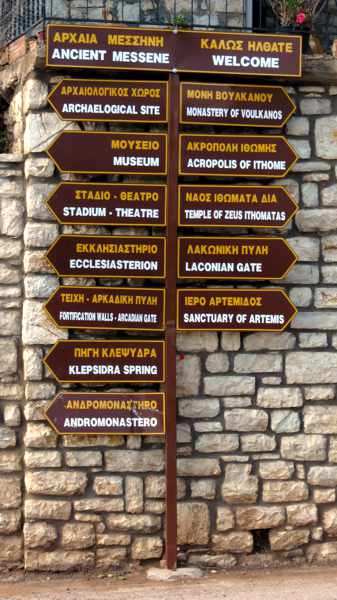

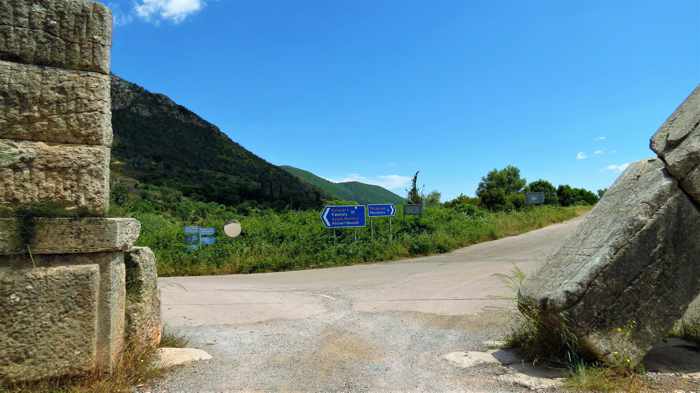
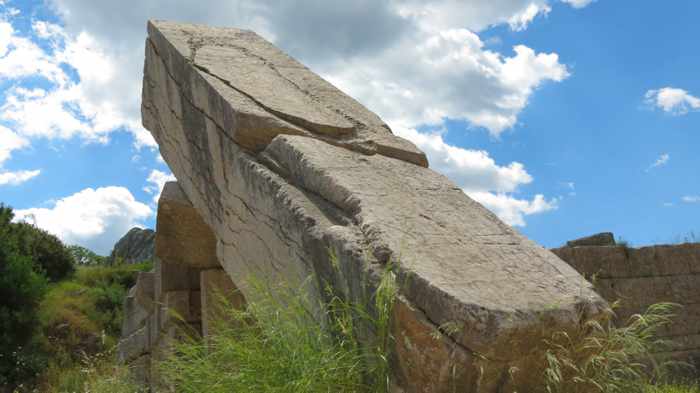


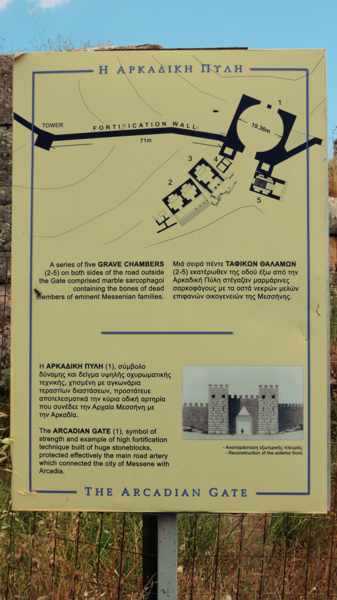
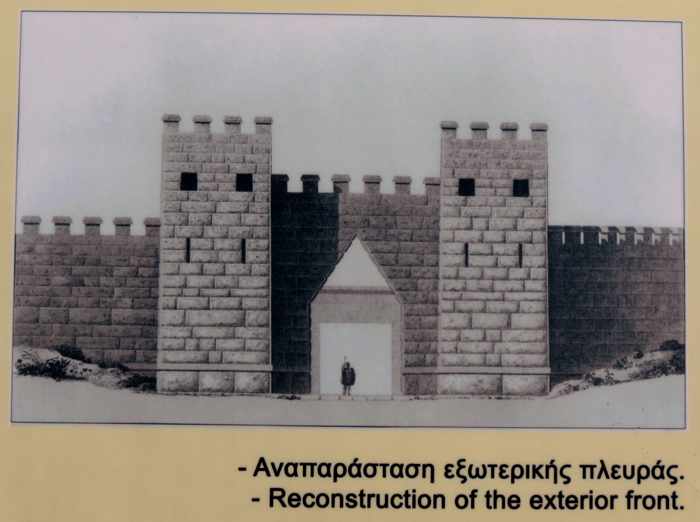
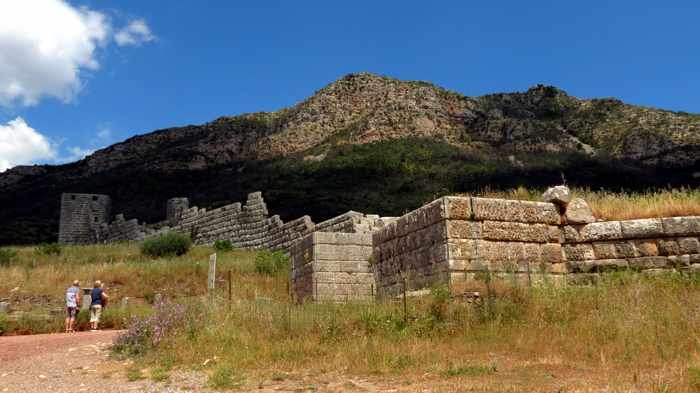
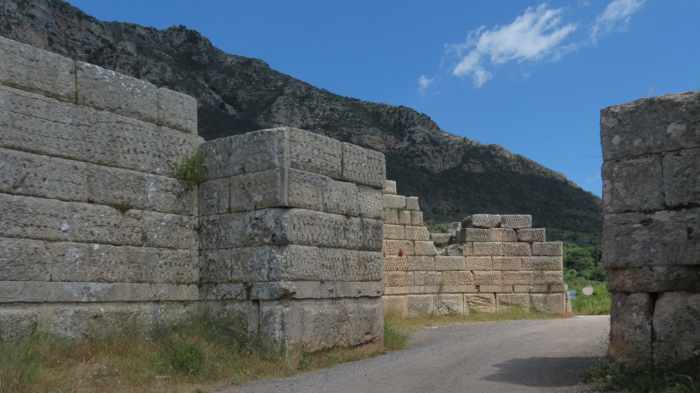

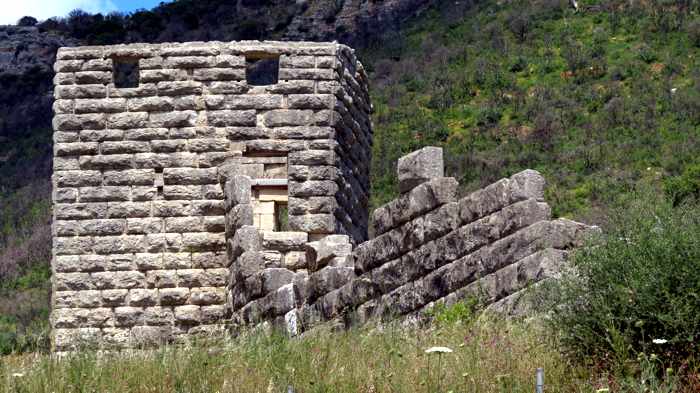
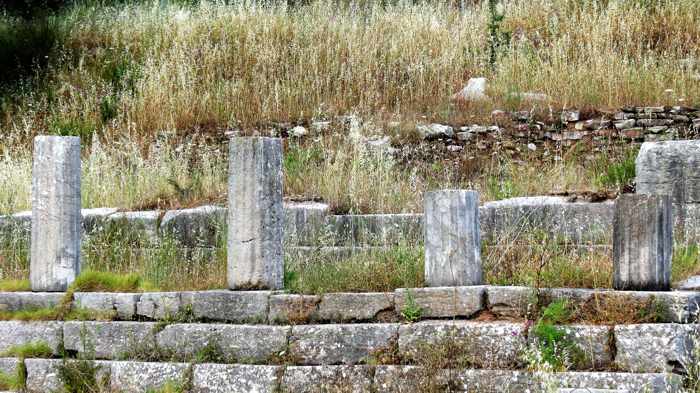
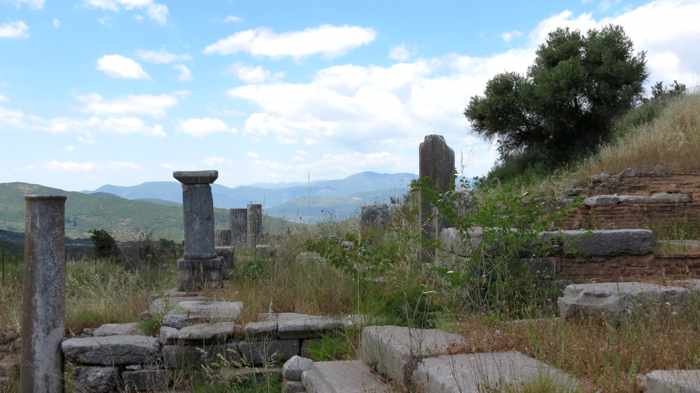

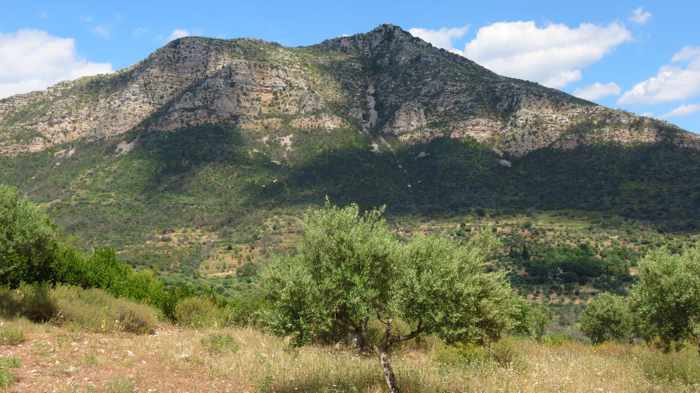
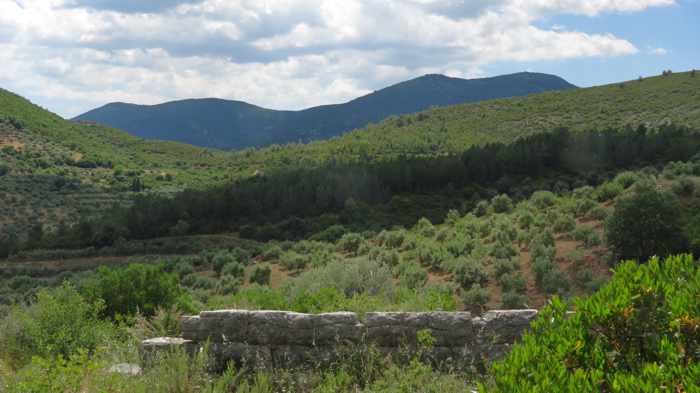
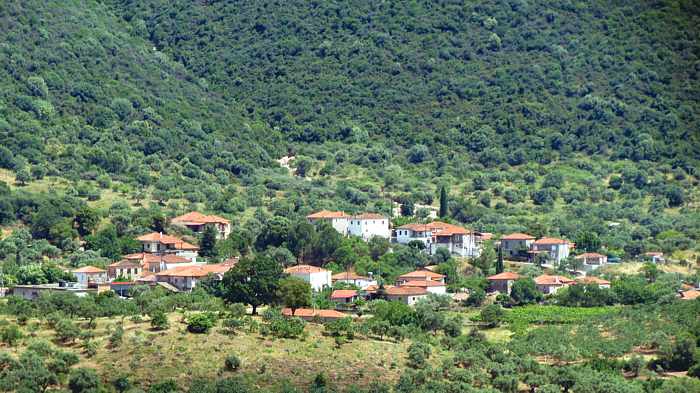
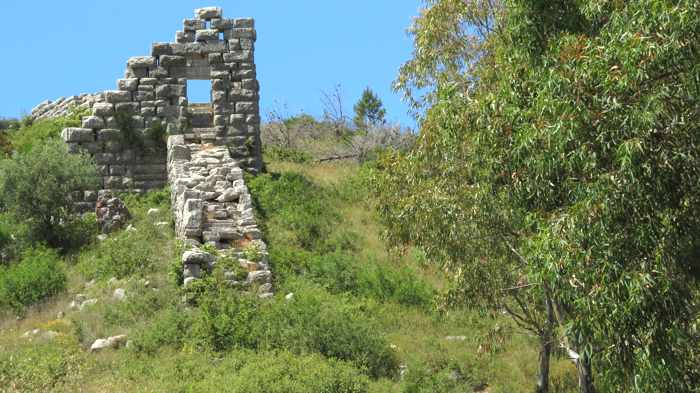

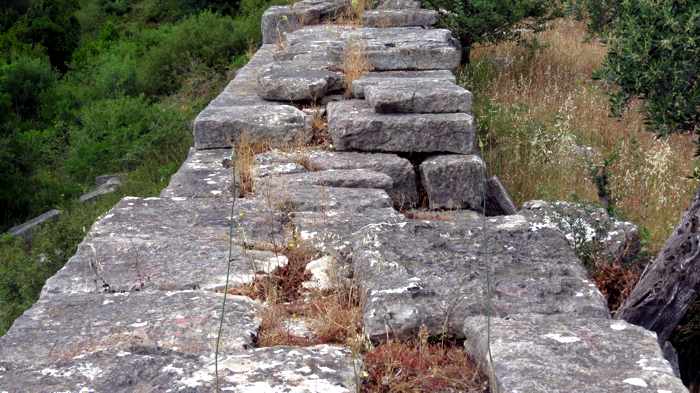



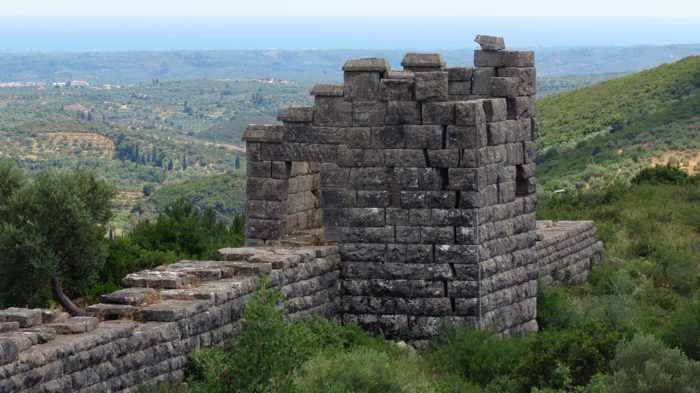
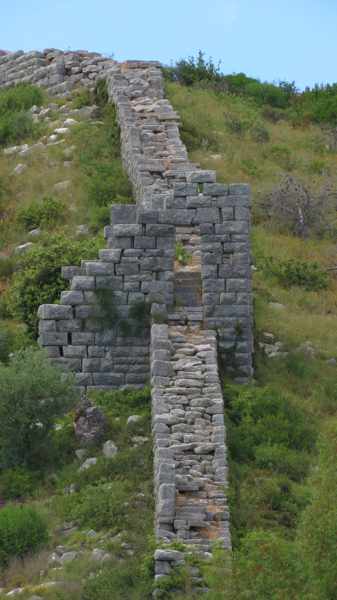
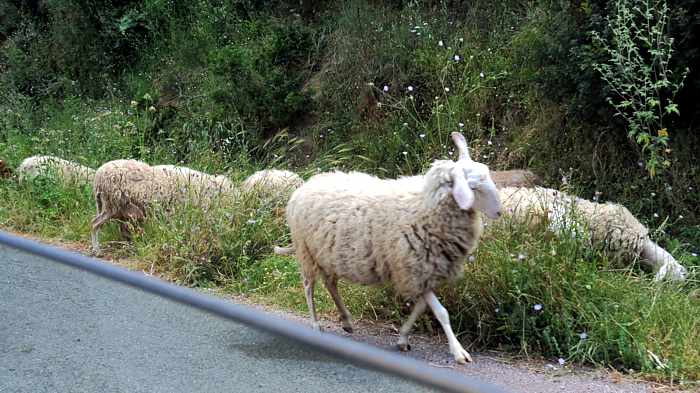

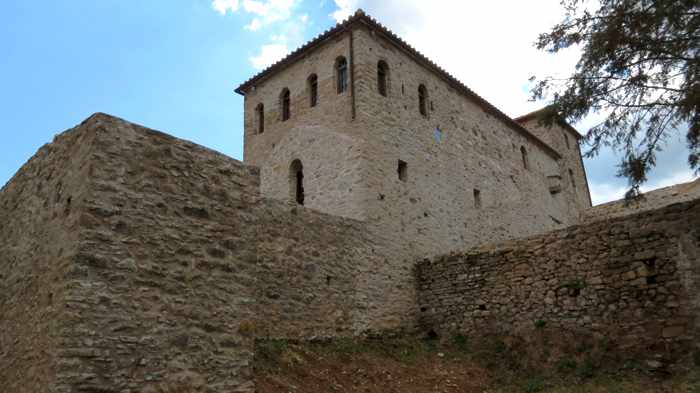
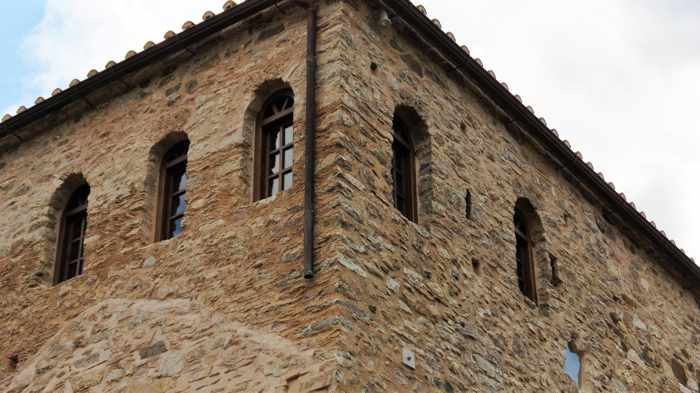
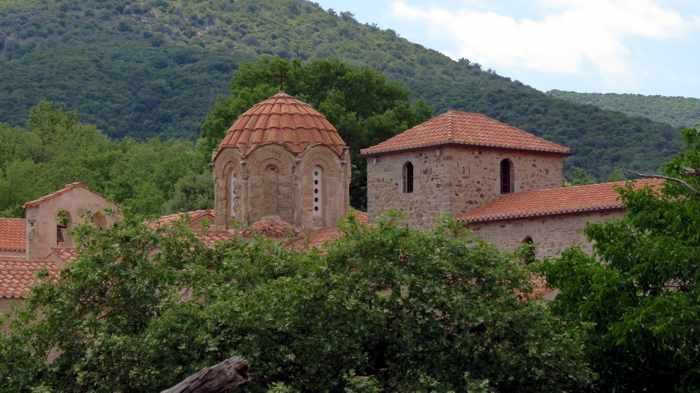
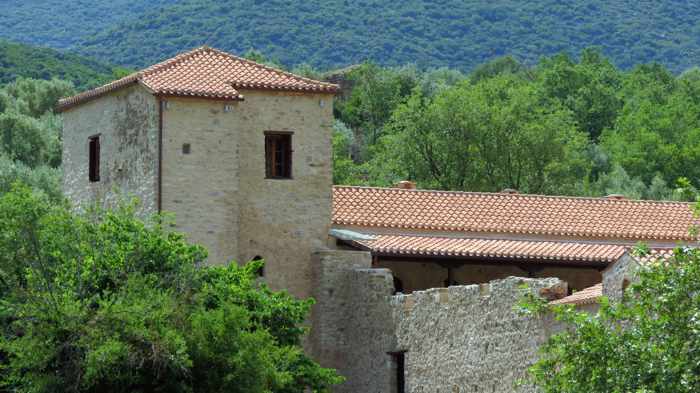
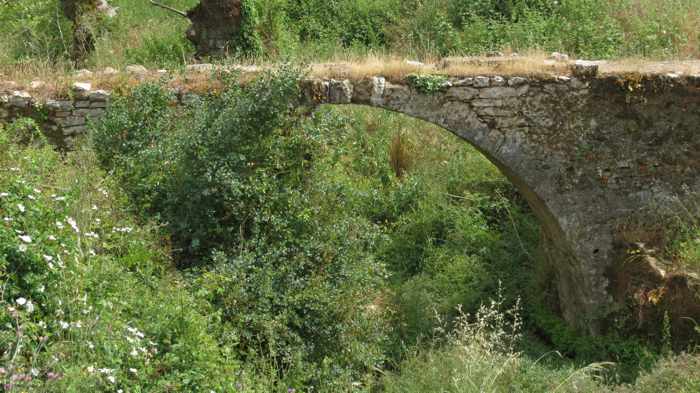
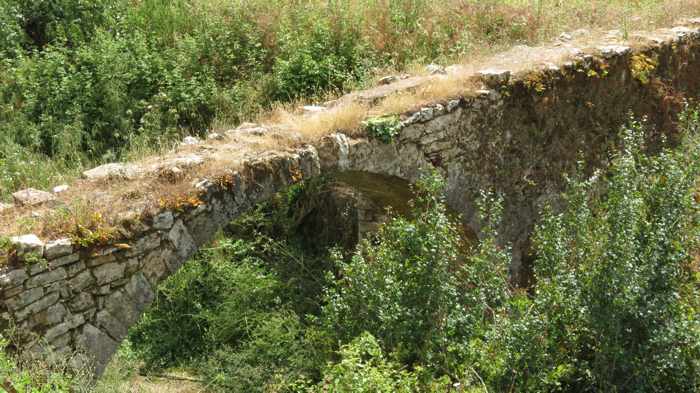
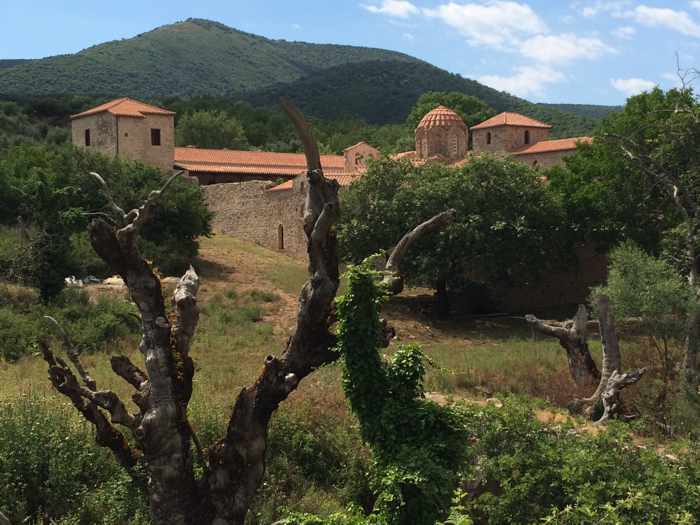
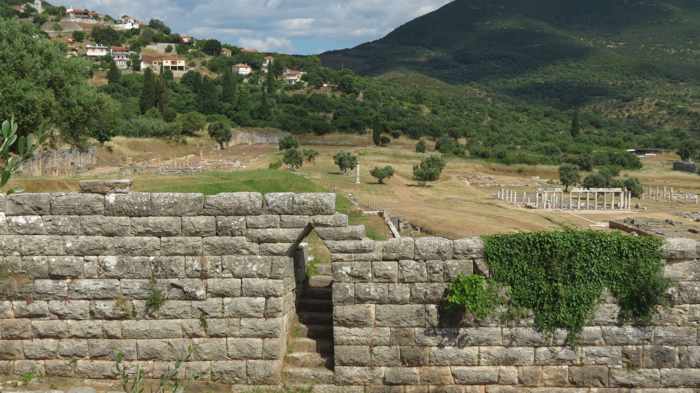
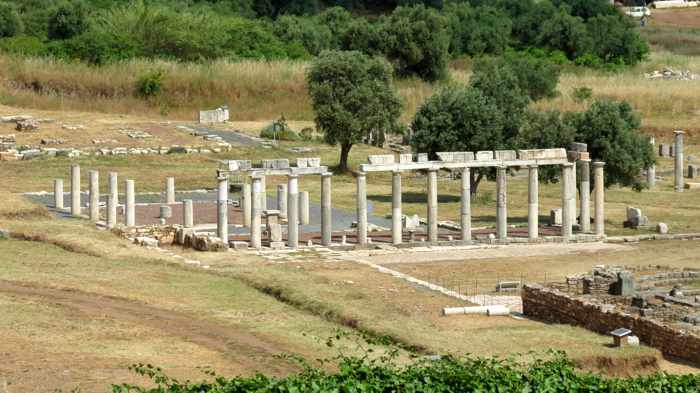
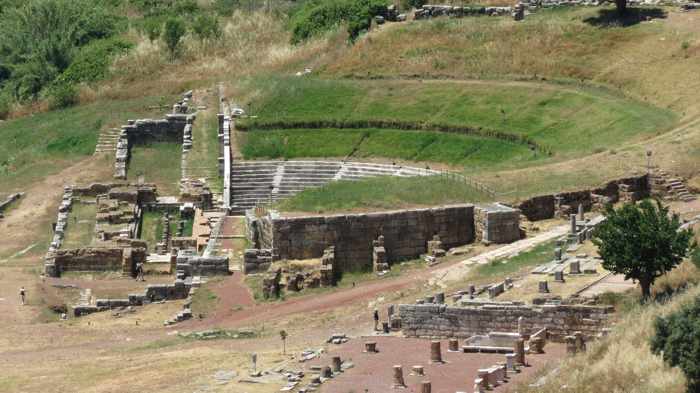
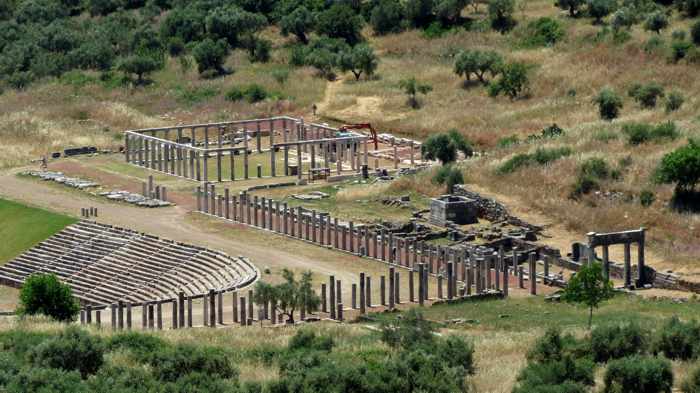

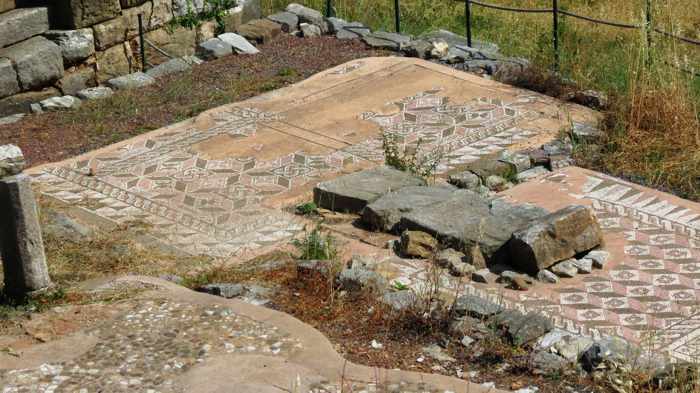
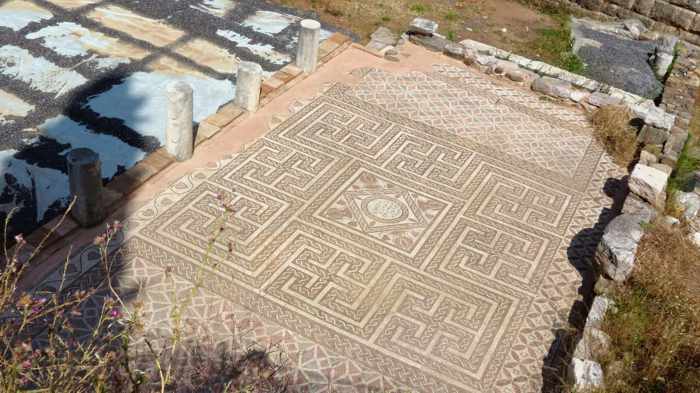
0 Comments
3 Pingbacks